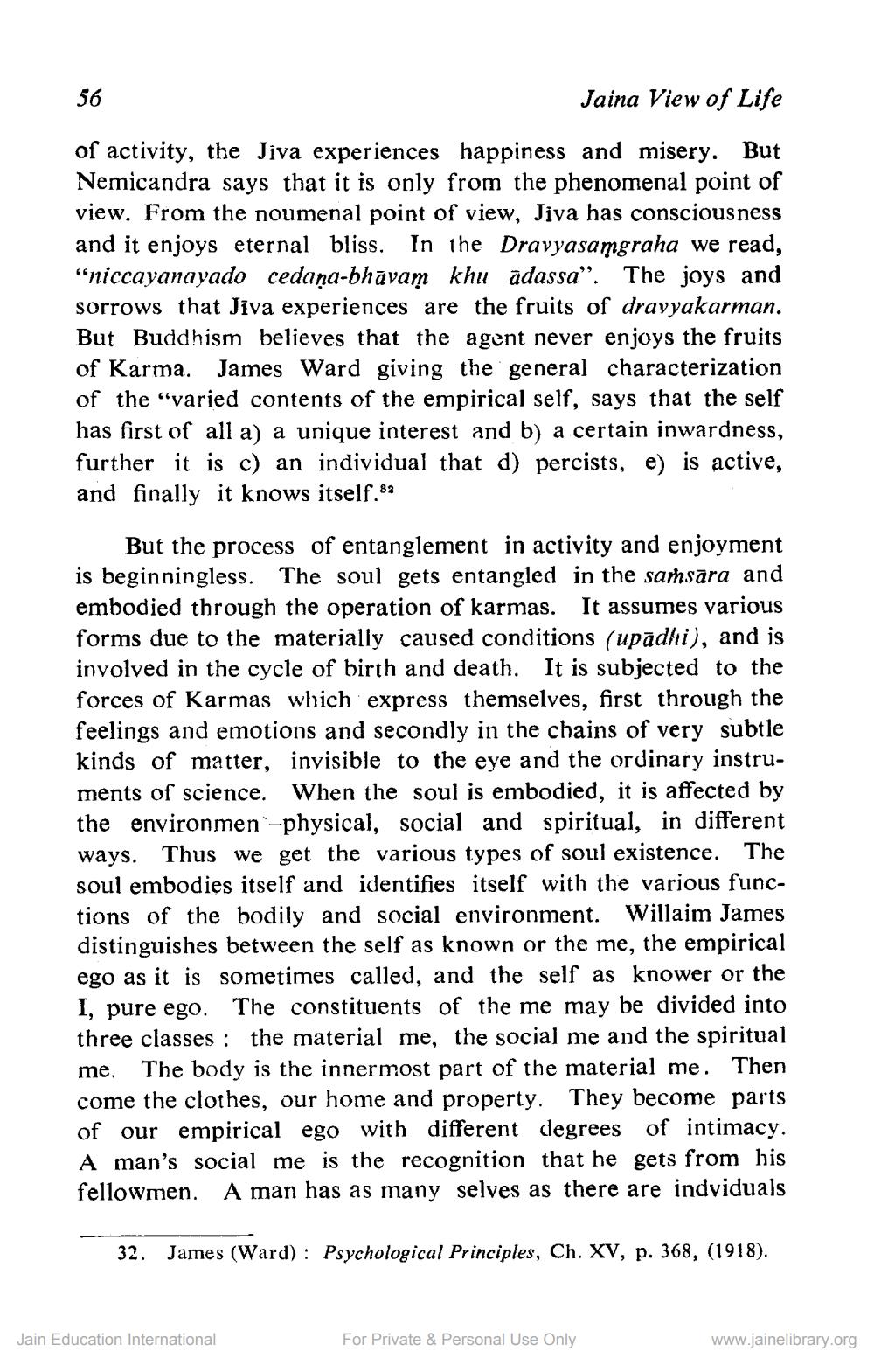________________
56
Jaina View of Life
of activity, the Jiva experiences happiness and misery. But Nemicandra says that it is only from the phenomenal point of view. From the noumenal point of view, Jiva has consciousness and it enjoys eternal bliss. In the Dravyasamgraha we read, "niccayanayado cedaņa-bhāvam khu adassa". The joys and sorrows that Jiva experiences are the fruits of drayyakarman. But Buddhism believes that the agent never enjoys the fruits of Karma. James Ward giving the general characterization of the “varied contents of the empirical self, says that the self has first of all a) a unique interest and b) a certain inwardness, further it is c) an individual that d) percists, e) is active, and finally it knows itself.sa
But the process of entanglement in activity and enjoyment is beginningless. The soul gets entangled in the samsāra and embodied through the operation of karmas. It assumes various forms due to the materially caused conditions (upādhi), and is involved in the cycle of birth and death. It is subjected to the forces of Karmas which express themselves, first through the feelings and emotions and secondly in the chains of very subtle kinds of matter, invisible to the eye and the ordinary instruments of science. When the soul is embodied, it is affected by the environmen"-physical, social and spiritual, in different ways. Thus we get the various types of soul existence. The soul embodies itself and identifies itself with the various functions of the bodily and social environment. Willaim James distinguishes between the self as known or the me, the empirical ego as it is sometimes called, and the self as knower or the I, pure ego. The constituents of the me may be divided into three classes : the material me, the social me and the spiritual me. The body is the innermost part of the material me. Then come the clothes, our home and property. They become parts of our empirical ego with different degrees of intimacy. A man's social me is the recognition that he gets from his fellowmen. A man has as many selves as there are indviduals
32. James (Ward): Psychological Principles, Ch. XV, p. 368, (1918).
Jain Education International
For Private & Personal Use Only
www.jainelibrary.org




